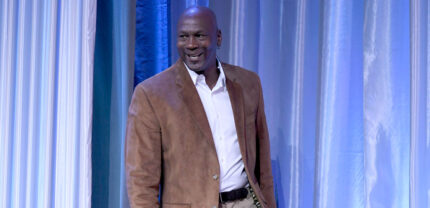The COVID-19 pandemic has been harsh on Black men when it comes to employment opportunities. According to a new report from the Center for American Progress entitled “Black Men and the U.S. Economy: How the Economic Recovery Is Perpetuating Systemic Racism,” employment for black men already lagged, and during the last two years since the start of the pandemic things have gotten even worse.

CAP is an independent, nonpartisan policy institute.
The report examined how Black men are excluded from the economy and wealth-building opportunities; looked at intentional policy choices the United States has made to keep Black men outside the financial mainstream; and how intersectional policy interventions that are available can increase the number of Black men in the labor force, create good jobs, address wage disparities and close the racial wealth gap.
More Black men are jobless than the already high unemployment figures would suggest, further contributing to greater poverty, reduced financial stability and a lack of generational wealth in Black families and communities.
A number of companies still aren’t hiring Black men — and that’s hurting the economy, according to the study. The void of Black men in the workplace has a ripple effect. It negatively impacts Black men and their families and communities — and the country loses billions, as much as $50 billion, a year, the study shows.
Black men are excluded from the workforce due to racist hiring practices. There also is the reality of Black men being killed and imprisoned at higher rates than other groups, found a new study by the Center for Economic and Policy Research.
Low-Wage Jobs
Historic discrimination has locked large numbers of Black men out of the labor market, and those who are employed are often overrepresented in low-wage jobs.
In February 2022, Black men’s unemployment was more than twice that of white men (6.4 percent for Black men compared to 3 percent for white men).
In 2021, more than 1 in 5 employed Black men worked in either leisure and hospitality or wholesale and retail trade. These front lines exposed Black families to higher health risks to COVID-19.
Additionally, the jobs held by Black men tend to pay less and have limited or no benefits such as paid family and medical leave, retirement savings and at-will scheduling.
While the unemployment rate for white men during this period was high relative to pre-pandemic levels, at 12.3 percent in April 2020, Black men’s unemployment soared to a high of 16 percent in June 2020.
Black men also endured longer periods of unemployment than white men in 2021. The typical duration of unemployment among Black men was 20.1 weeks, compared to 16.6 weeks among white men.
Solutions
According to CAP, the U.S. government holds the solutions to the employment crisis involving Black men.
“A recovery that does not address the consequences of systemic racism and its impact on Black men’s employment cannot be considered as having achieved full employment in the United States. A truly equitable economy must deliberately center Black men, addressing the historical barriers to their full employment and participation in the labor market,” the report states.
CAP calls for policy changes and iniatives.
“Yet to do so equitably, the federal government—along with state and local governments, nonprofits, and the private sector—must also work to dismantle the historical racism, sexism, and ableism that has impeded economic security and mobility for far too many individuals and communities of color,” according to the report.




